Sustainable Palmyra PS leading the way in WA
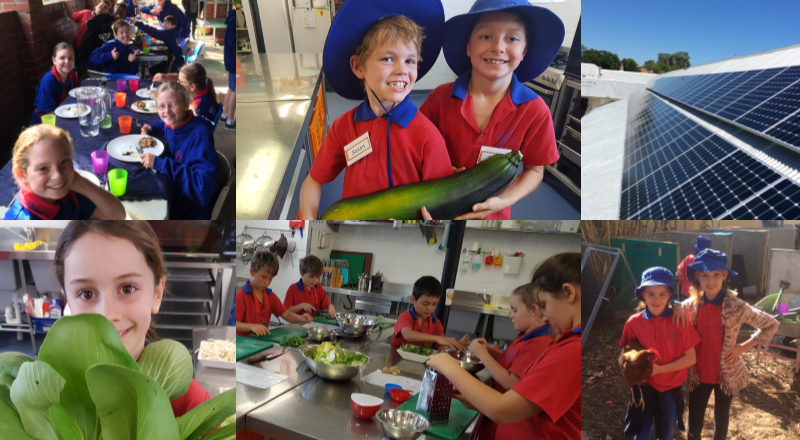
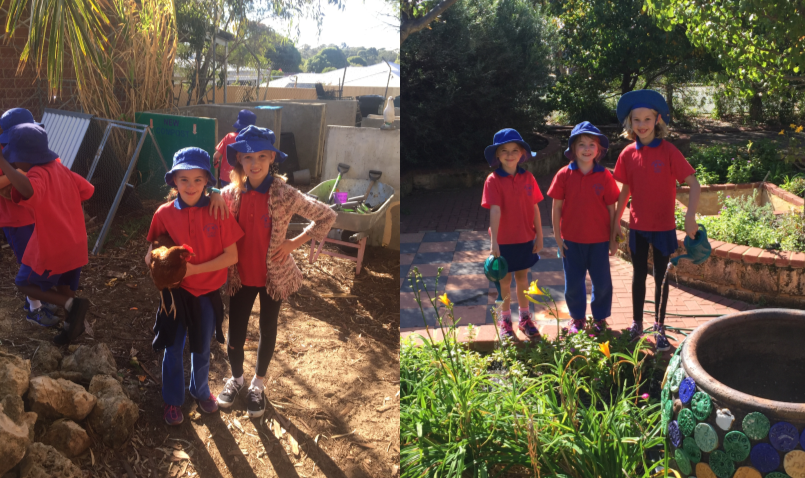
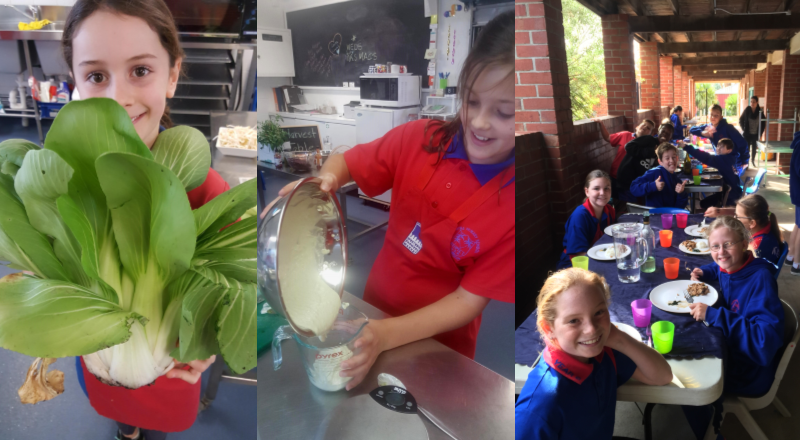
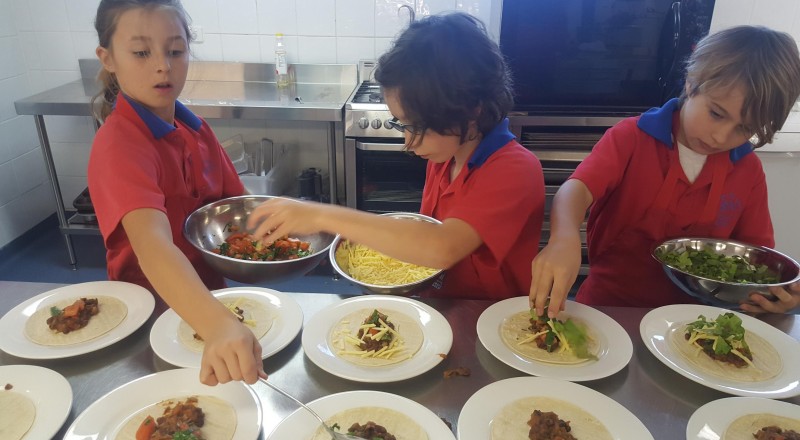
This article originally appeared in the Western Australian Primary Principals Association's WORDS magazine and published by the Stephanie Alexander Kitchen Garden Foundation on Tuesday 5 June, 2018.
With a kitchen garden, rain water tanks, solar power, an aquaponics farm and a comprehensive recycling system, Palmyra Primary School is pioneering school sustainability in Western Australia.
Led by passionate Principal Hugh McCracken, Palmyra Primary has gone through a green transformation and can now proudly say they are carbon neutral. Hugh became the school’s Principal in 2009, and in those eight years Palmyra has grown its garden and sustainability initiatives, as well as student numbers from 287 students to 540 students.
Even though student numbers have grown, the school’s waste has decreased by 80% due to their sustainability efforts. The school’s students take an active role in these efforts as part of the sustainability committee.
“We want our kids to set up the world they want to inherit.”
- Hugh McCracken, Principal.
Palmyra is part of the Waste Wise Schools Program, and was an early adopter of the three-bin (recycling, organic waste and garbage) system. Hugh said they had also extended their efforts to include collecting old mobile phones, printer cartridges and toothbrushes to be recycled.
All food scraps generated by the school are collected and turned into compost in their kitchen garden or fed to the school’s chickens.
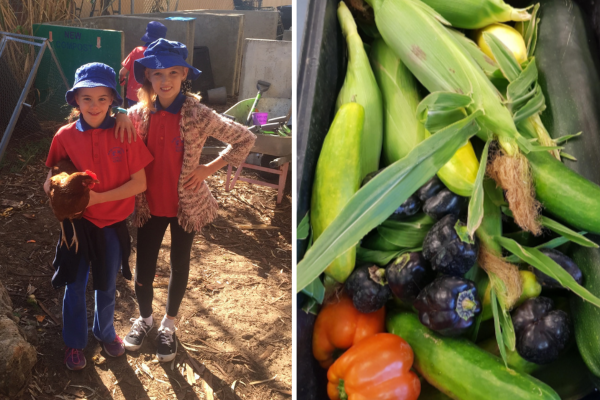
Hugh said the school had reduced its water usage by 60% by installing water tanks, which supply water to their toilet blocks as well as the garden.
Solar panels have also helped the school dramatically cut down their carbon footprint. The panels were placed on a large tin roof, facing north, east, south and west to harness maximum sunlight, and are also designed to capture moonlight. The system was so successful that they are now helping to power their community as well.
“We are now putting more power back into the grid than we are drawing to use,” Hugh said.
The trailblazing school was also the first in Western Australia to implement the Stephanie Alexander Kitchen Garden Program. Palmyra joined the Program in 2009 and started a kitchen garden, dubbed the Pally Patch, in the school grounds.
The Pally Patch had started out as a 300-square-metre garden, but it had become such a loved part of the school that it had now grown to 2000 square metres.
.png)
“The garden is part of the culture of the school. The community are always donating things, so we haven’t really bought anything for the garden.’’
The Pally Patch is an impressive space that includes vegetable garden beds, olive trees, fruit trees, an aquaponics farm, an outdoor classroom, deck, pizza oven, and a frog bog.
Students from all year levels at the school help tend the Pally Patch in garden classes run by the Gardener, the school’s garden specialist.
Students also learn to make dishes in kitchen classes run by the school’s kitchen specialist, the Chef. They adapt the recipes to use the seasonal produce they have grown.
.png)
“When the basil season ended, they started making spinach pesto, then when the spinach ran out they made broad bean pesto,’’ Hugh said.
Hugh said eating delicious seasonal recipes, made with produce they had grown themselves, was a great way to encourage students to try new foods. Some of the students didn’t eat broad beans, but once they made the pesto themselves, they loved it and were asking their parents to get broad beans to make it at home.
“We send the recipes home with the kids, and the kids go home and cook the recipes they’ve made at school. The Kitchen Garden Program influences the shopping trolley for families.’’
The Program has been enthusiastically embraced by the school community, with parents volunteering to look after the garden in school holidays and help with kitchen and garden classes, as well as with projects such as making their own olive oil.
To complement the Kitchen Garden Program, the school hosts the sustainable Western Farmers Market on Sundays. Stallholders must have grown or made everything they sell at the market.
.png)
Hugh said it attracted 2000–3000 people every week, and the proceeds support the school’s Kitchen Garden Program by paying the wages for their Chef and Gardener.
The Kitchen Garden Program has also had a positive impact on Palmyra’s canteen. Students help make dishes like Greek salad and rice paper rolls with produce from the garden, which is sold in the canteen.The school’s no waste policy extends to the canteen where items are sold in reusable bags and straws are not offered for drinks.
Hugh said the culture of the Kitchen Garden Program had permeated the whole school community. “We don’t need to have nude food days, as nothing in the children’s lunchboxes is in wrappers. The kids ask for things like carrots and apples in their lunch."
- To find out how your school or centre can dig into pleasurable food education like Palmyra Primary School, head to the Kitchen Garden Program membership page.
- Any questions? Call our friendly Support Team on 13000 SAKGF (13000 72543).
< Back to Latest News
